 I have yet to jump on the metaverse bandwagon, but I see more and more companies offering “virtual experiences” to the masses. For those unfamiliar with the metaverse, it is the emerging 3-D-enabled digital space that uses virtual reality, augmented reality, and other advanced internet and semiconductor technology to allow people to have lifelike personal and business experiences online. And now, more companies are trying to use the metaverse to make interactions as lifelike as possible. Scientists have been working on taste-simulation technologies for years and have artificially generated “virtual” minty, sweet, sour, salty, and bitter flavors, as well as chewy and crunchy textures, via electrode-embedded gadgets and electrical muscle stimulation jaw patches. In fact, several companies are working on new virtual-taste technologies for therapeutics, gastronomy, and virtual dining in the metaverse. This will certainly be an interesting trend to watch. And now on to this week’s logistics news.
I have yet to jump on the metaverse bandwagon, but I see more and more companies offering “virtual experiences” to the masses. For those unfamiliar with the metaverse, it is the emerging 3-D-enabled digital space that uses virtual reality, augmented reality, and other advanced internet and semiconductor technology to allow people to have lifelike personal and business experiences online. And now, more companies are trying to use the metaverse to make interactions as lifelike as possible. Scientists have been working on taste-simulation technologies for years and have artificially generated “virtual” minty, sweet, sour, salty, and bitter flavors, as well as chewy and crunchy textures, via electrode-embedded gadgets and electrical muscle stimulation jaw patches. In fact, several companies are working on new virtual-taste technologies for therapeutics, gastronomy, and virtual dining in the metaverse. This will certainly be an interesting trend to watch. And now on to this week’s logistics news.
- Amazon launches local business delivery network
- Kodiak, Loadsmith to put 800 trucks on new autonomous freight network
- The Home Depot launches $500M cost-savings plan
- Biden administration to spend $450 million on higher-blend biofuels
- How Philadelphia I-95 Span reopened in just 12 days
- Survey: emissions reduction is a priority over next 12 months
- Positive drug tests rise to 20-year high as marijuana is legalized
- Domino’s makes first ever “jet pack delivery”
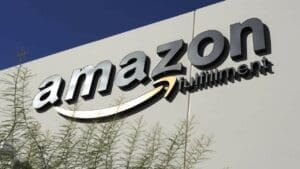 Amazon plans to tap thousands of U.S. small businesses, from bodegas to florists, to deliver its packages by the end of the year. Starting next week, Amazon will start actively recruiting existing small businesses in 23 states including Alabama, Alaska, Arkansas, California, Florida, Iowa, Indiana, Illinois, Massachusetts, Minnesota, North Carolina, North Dakota, New Jersey, New York, Ohio, South Dakota, and Washington. Dubbed Amazon Hub Delivery, this is the tech and logistics giant’s latest attempt to expand its “last mile” network — the last stage in logistics where packages are ultimately delivered to customers — through external workforces. Participating businesses deliver an average of 30 packages a day for seven days a week, excluding major holidays. Meanwhile, drivers from Amazon’s Delivery Service Partner network drop off the packages to local businesses, which are required to have a secure area for storage. Amazon wouldn’t state exactly how much it pays per package; but based on earnings of $27,000 a year, the rate would be about $2.50 a package.
Amazon plans to tap thousands of U.S. small businesses, from bodegas to florists, to deliver its packages by the end of the year. Starting next week, Amazon will start actively recruiting existing small businesses in 23 states including Alabama, Alaska, Arkansas, California, Florida, Iowa, Indiana, Illinois, Massachusetts, Minnesota, North Carolina, North Dakota, New Jersey, New York, Ohio, South Dakota, and Washington. Dubbed Amazon Hub Delivery, this is the tech and logistics giant’s latest attempt to expand its “last mile” network — the last stage in logistics where packages are ultimately delivered to customers — through external workforces. Participating businesses deliver an average of 30 packages a day for seven days a week, excluding major holidays. Meanwhile, drivers from Amazon’s Delivery Service Partner network drop off the packages to local businesses, which are required to have a secure area for storage. Amazon wouldn’t state exactly how much it pays per package; but based on earnings of $27,000 a year, the rate would be about $2.50 a package.
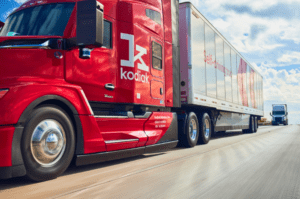 Autonomous trucking startup Kodiak Robotics has signed a deal with Loadsmith, a marketplace that connects shippers and carriers, to put 800 Kodiak-equipped trucks on its platform. Loadsmith says its newly formed entity, Loadsmith Transportation, is the first freight transportation company built specifically for self-driving trucks. The Kodiak partnership is meant to serve as the foundation for the new autonomous network. Last May, Loadsmith secured 350 autonomous trucks through TuSimple, but canceled its order a few months later. TuSimple has had a tumultuous year, including several executive shakeups, large-scale layoffs, federal investigations and the loss of a deal to build purpose-built trucks with Navistar. TuSimple is also facing a delisting from the Nasdaq. Here’s how the partnership with Kodiak will work. Loadsmith will order the trucks from a dealership, and Kodiak will equip them with its self-driving system, which includes hardware and software, according to Don Burnette, CEO and founder of Kodiak. The trucks will belong to Loadsmith, and Kodiak will sell its self-driving tech on a per-mile subscription basis.
Autonomous trucking startup Kodiak Robotics has signed a deal with Loadsmith, a marketplace that connects shippers and carriers, to put 800 Kodiak-equipped trucks on its platform. Loadsmith says its newly formed entity, Loadsmith Transportation, is the first freight transportation company built specifically for self-driving trucks. The Kodiak partnership is meant to serve as the foundation for the new autonomous network. Last May, Loadsmith secured 350 autonomous trucks through TuSimple, but canceled its order a few months later. TuSimple has had a tumultuous year, including several executive shakeups, large-scale layoffs, federal investigations and the loss of a deal to build purpose-built trucks with Navistar. TuSimple is also facing a delisting from the Nasdaq. Here’s how the partnership with Kodiak will work. Loadsmith will order the trucks from a dealership, and Kodiak will equip them with its self-driving system, which includes hardware and software, according to Don Burnette, CEO and founder of Kodiak. The trucks will belong to Loadsmith, and Kodiak will sell its self-driving tech on a per-mile subscription basis.
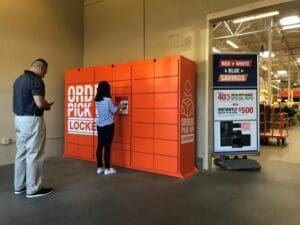 The Home Depot is undergoing a $500 million cost savings push that will see the company reduce its supply chain holding capacity, EVP and CFO Richard McPhail said during a June 13 investor and analyst conference. The home improvement retailer expects to complete the effort in fiscal year 2024. Savings will focus on reducing fixed operating costs beyond product and transportation expenses that were “built up as a result of the rampant increase in transactions during 2020 and 2021,” McPhail said. The Home Depot had to expand its supply chain footprint at a higher cost than it wanted in order to handle the surge in demand, the CFO said. “We are now gradually reducing that holding capacity as transactions normalize.” Much of The Home Depot’s supply chain spending is still poised to benefit it for the long haul, even with its cost-cutting efforts.
The Home Depot is undergoing a $500 million cost savings push that will see the company reduce its supply chain holding capacity, EVP and CFO Richard McPhail said during a June 13 investor and analyst conference. The home improvement retailer expects to complete the effort in fiscal year 2024. Savings will focus on reducing fixed operating costs beyond product and transportation expenses that were “built up as a result of the rampant increase in transactions during 2020 and 2021,” McPhail said. The Home Depot had to expand its supply chain footprint at a higher cost than it wanted in order to handle the surge in demand, the CFO said. “We are now gradually reducing that holding capacity as transactions normalize.” Much of The Home Depot’s supply chain spending is still poised to benefit it for the long haul, even with its cost-cutting efforts.
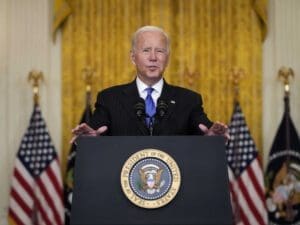 The U.S. Department of Agriculture will spend $450 million to expand the production and availability of transportation fuels that are blended with higher volumes of biofuels, the agency said on Monday. The Biden administration sees the expanded use of lower-emission biofuels as critical to decarbonizing the transportation sector. The Environmental Protection Agency last week announced the highest-ever targets for a federal program that requires oil refiners to blend biofuels into the nation’s fuel mix, though the targets were lower than the ethanol industry had expected. The money, which comes from the Inflation Reduction Act, will go to the USDA’s Higher Blends Infrastructure Incentive Program (HBIIP), a cost-share program for fuel facilities to build and retrofit infrastructure that supports biofuel blending and distribution.
The U.S. Department of Agriculture will spend $450 million to expand the production and availability of transportation fuels that are blended with higher volumes of biofuels, the agency said on Monday. The Biden administration sees the expanded use of lower-emission biofuels as critical to decarbonizing the transportation sector. The Environmental Protection Agency last week announced the highest-ever targets for a federal program that requires oil refiners to blend biofuels into the nation’s fuel mix, though the targets were lower than the ethanol industry had expected. The money, which comes from the Inflation Reduction Act, will go to the USDA’s Higher Blends Infrastructure Incentive Program (HBIIP), a cost-share program for fuel facilities to build and retrofit infrastructure that supports biofuel blending and distribution.
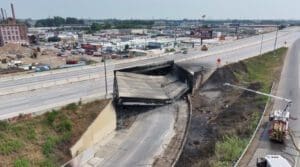 Less than two weeks after a tanker truck crash and fire destroyed an Interstate-95 bridge in northeast Philadelphia, the highway reopened to traffic on a temporary road surface June 23. The hastened work to reopen the highway, which has an average daily traffic count of nearly 160,000 vehicles, including about 13,000 trucks, was the result of collaboration between contractors, material suppliers and union workers with local, state and federal officials, Pennsylvania Gov. Josh Shapiro (D) said. While it took firefighters hours to get the gasoline-fueled fire under control, a contractor had its equipment ready at the site the same day to begin round-the-clock demolition work. PennDOT officials enlisted two contractors working on its other projects nearby to take on the emergency project. Sewell, N.J.-based C. Abbonizio Contractors Inc., which had been working on an interchange project in the area as part of PennDOT’s “95 Revive” program, completed demolition of the old bridge in just four days.
Less than two weeks after a tanker truck crash and fire destroyed an Interstate-95 bridge in northeast Philadelphia, the highway reopened to traffic on a temporary road surface June 23. The hastened work to reopen the highway, which has an average daily traffic count of nearly 160,000 vehicles, including about 13,000 trucks, was the result of collaboration between contractors, material suppliers and union workers with local, state and federal officials, Pennsylvania Gov. Josh Shapiro (D) said. While it took firefighters hours to get the gasoline-fueled fire under control, a contractor had its equipment ready at the site the same day to begin round-the-clock demolition work. PennDOT officials enlisted two contractors working on its other projects nearby to take on the emergency project. Sewell, N.J.-based C. Abbonizio Contractors Inc., which had been working on an interchange project in the area as part of PennDOT’s “95 Revive” program, completed demolition of the old bridge in just four days.
 Consumer demand for more sustainable products is pushing both shippers and carriers to shift toward more eco-conscious operations, according to a report from Breakthrough, a transportation management technology provider. Despite industry headwinds, nearly 94 percent of transportation professionals say consumer demand for more sustainable products makes reducing emissions a top priority for the next year, Ashwaubenon, Wisconsin-based Breakthrough said. The data comes from the firm’s “2023 State of Transportation study,” which surveyed 500 transportation leaders, including carriers and shippers, at enterprises across the United States about their goals, priorities, and predictions for the next 12 months. As such, electric and alternative energy vehicles are in-demand green solutions, the study found. The majority of shippers (99 percent) agree they would take advantage of these options if carriers in their networks offered them — and 79 percent strongly agree. On the carrier side, nearly all respondents (97 percent) see value in adding EVs to their fleets — and 59 percent plan to do so by the end of 2023.
Consumer demand for more sustainable products is pushing both shippers and carriers to shift toward more eco-conscious operations, according to a report from Breakthrough, a transportation management technology provider. Despite industry headwinds, nearly 94 percent of transportation professionals say consumer demand for more sustainable products makes reducing emissions a top priority for the next year, Ashwaubenon, Wisconsin-based Breakthrough said. The data comes from the firm’s “2023 State of Transportation study,” which surveyed 500 transportation leaders, including carriers and shippers, at enterprises across the United States about their goals, priorities, and predictions for the next 12 months. As such, electric and alternative energy vehicles are in-demand green solutions, the study found. The majority of shippers (99 percent) agree they would take advantage of these options if carriers in their networks offered them — and 79 percent strongly agree. On the carrier side, nearly all respondents (97 percent) see value in adding EVs to their fleets — and 59 percent plan to do so by the end of 2023.
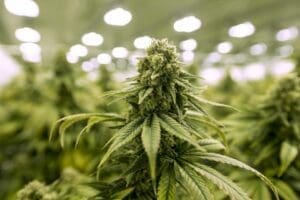 As some states have moved to legalize recreational marijuana, the overall workforce drug test positivity rate has climbed to a narrow, two-decade high across workers in all sectors, according to an analysis by Quest Diagnostics. Broken out by industry, retail trade had the highest count of positive tests for all drugs—not just marijuana—in 2022 with 7.7 percent, followed by accommodation and food services (7.0 percent) and transportation and warehousing (5.3 percent). They were trailed by construction (4.7 percent), manufacturing (4.5 percent), and finance and insurance (3.6 percent). Positivity rates for marijuana in the general U.S. workforce, based on more than 6.3 million urine tests, continued an upward climb, increasing to 4.3 percent in 2022—the highest positivity rate ever reported in the study—over 3.9 percent in 2021 and 2.8 percent in 2018. The numbers come from the latest Quest Diagnostics Drug Testing Index (DTI) report. It covers the combined U.S. workforce, which includes both the general U.S. workforce of mostly company-policy testing by private employers and also the federally mandated, safety-sensitive workforce. Those covered under mandatory testing rules include federal employees and the transportation and nuclear power industries, spanning workers such as pilots, truck drivers, and train conductors.
As some states have moved to legalize recreational marijuana, the overall workforce drug test positivity rate has climbed to a narrow, two-decade high across workers in all sectors, according to an analysis by Quest Diagnostics. Broken out by industry, retail trade had the highest count of positive tests for all drugs—not just marijuana—in 2022 with 7.7 percent, followed by accommodation and food services (7.0 percent) and transportation and warehousing (5.3 percent). They were trailed by construction (4.7 percent), manufacturing (4.5 percent), and finance and insurance (3.6 percent). Positivity rates for marijuana in the general U.S. workforce, based on more than 6.3 million urine tests, continued an upward climb, increasing to 4.3 percent in 2022—the highest positivity rate ever reported in the study—over 3.9 percent in 2021 and 2.8 percent in 2018. The numbers come from the latest Quest Diagnostics Drug Testing Index (DTI) report. It covers the combined U.S. workforce, which includes both the general U.S. workforce of mostly company-policy testing by private employers and also the federally mandated, safety-sensitive workforce. Those covered under mandatory testing rules include federal employees and the transportation and nuclear power industries, spanning workers such as pilots, truck drivers, and train conductors.
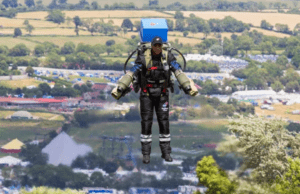 And finally, we have seen increased interest in alternative delivery methods, especially as technology has improved. For instance, drone deliveries, autonomous mobile robot deliveries, and autonomous car deliveries have become more commonplace. But Domino’s, which has dabbled in each of these areas, has set a new standard. Last week, at the Glastonbury Music Festival, Domino’s delivered a pizza via jet suit. And in what was definitely not an accident, the stunt coincided with “Rocket Man” singer Elton John’s headlining performance. “When we realized pitching up to serve slices inside the festival was impossible, we took inspiration from this year’s headliner to launch our own rapid delivery trial — it was a bit of a no-brainer,” said Domino’s assistant PR manager Sam Wilson.
And finally, we have seen increased interest in alternative delivery methods, especially as technology has improved. For instance, drone deliveries, autonomous mobile robot deliveries, and autonomous car deliveries have become more commonplace. But Domino’s, which has dabbled in each of these areas, has set a new standard. Last week, at the Glastonbury Music Festival, Domino’s delivered a pizza via jet suit. And in what was definitely not an accident, the stunt coincided with “Rocket Man” singer Elton John’s headlining performance. “When we realized pitching up to serve slices inside the festival was impossible, we took inspiration from this year’s headliner to launch our own rapid delivery trial — it was a bit of a no-brainer,” said Domino’s assistant PR manager Sam Wilson.
That’s all for this week. Enjoy the weekend and the song of the week, Taste by Phish.

















